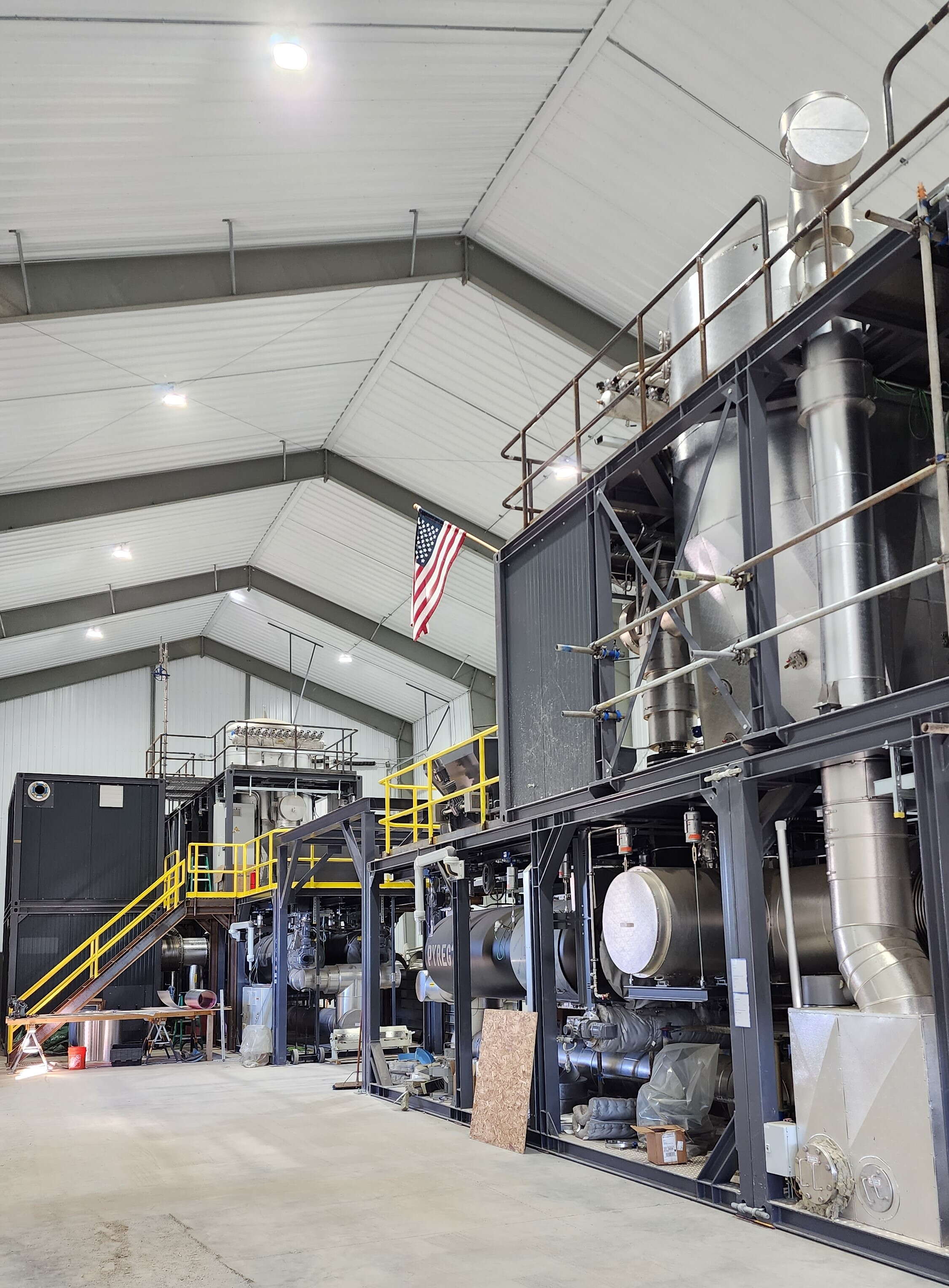
$5M investment to help Penobscot County firm produce sustainable ‘biochar’
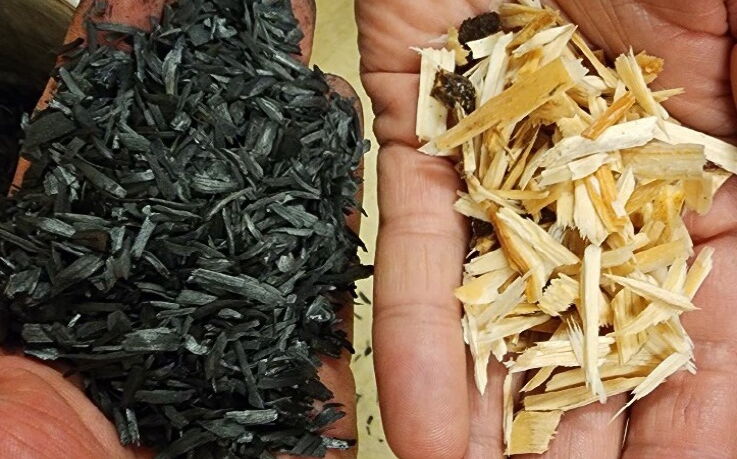 Courtesy / Standard Biocarbon Corp.
Standard Biocarbon said it plans to begin commercial production of high-quality biochar, left, from mill residuals in the coming three months.
Courtesy / Standard Biocarbon Corp.
Standard Biocarbon said it plans to begin commercial production of high-quality biochar, left, from mill residuals in the coming three months.
More Information
With installation of key equipment completed, Standard Biocarbon plans to begin commercial production of high-quality biochar in the next three months.
The company said it will be able to scale up its operation thanks to a $5 million investment from Nexus Development Capital.
Nexus Development Capital — a partner of Nexus PMG, a low-carbon infrastructure development and services company in Dallas, Texas — provides capital and expertise to sustainable infrastructure project developers.
Standard Biocarbon was founded by sustainability entrepreneurs Fred Horton and Tom Horton in 2020 to develop a scalable commercial biochar manufacturing plant.

“This investment by Nexus Development Capital has enabled Standard Biocarbon to complete one of the most advanced and efficient biochar plants in the world,” said Fred Horton, Standard’s CEO. “We’re seeing incredible interest in a consistent supply of our high-quality purpose-made biochar, which until now has been nearly impossible to find.”
Biochar, a charcoal-like material, is produced by heating organic matter to an extremely high temperature in a low-oxygen environment. The biochar can then store carbon for thousands of years. By putting biochar back into the earth, the carbon is permanently removed, making biochar one of the most immediate commercially scalable pathways for carbon removal.
The substance has multiple established agricultural applications, and can also be used in hazardous waste remediation, stormwater management and in low-carbon cement, pavement and polymers.
Penobscot County site
Standard’s plant is co-located at the Pleasant River Sawmill, at 542 Hammett Road in Enfield, where the site offers a reliable supply of clean, high-quality feedstock in the form of mill residuals. Chris and Jason Brochu, co-presidents of Pleasant River Lumber, have provided support and assistance to the establishment of the operation.
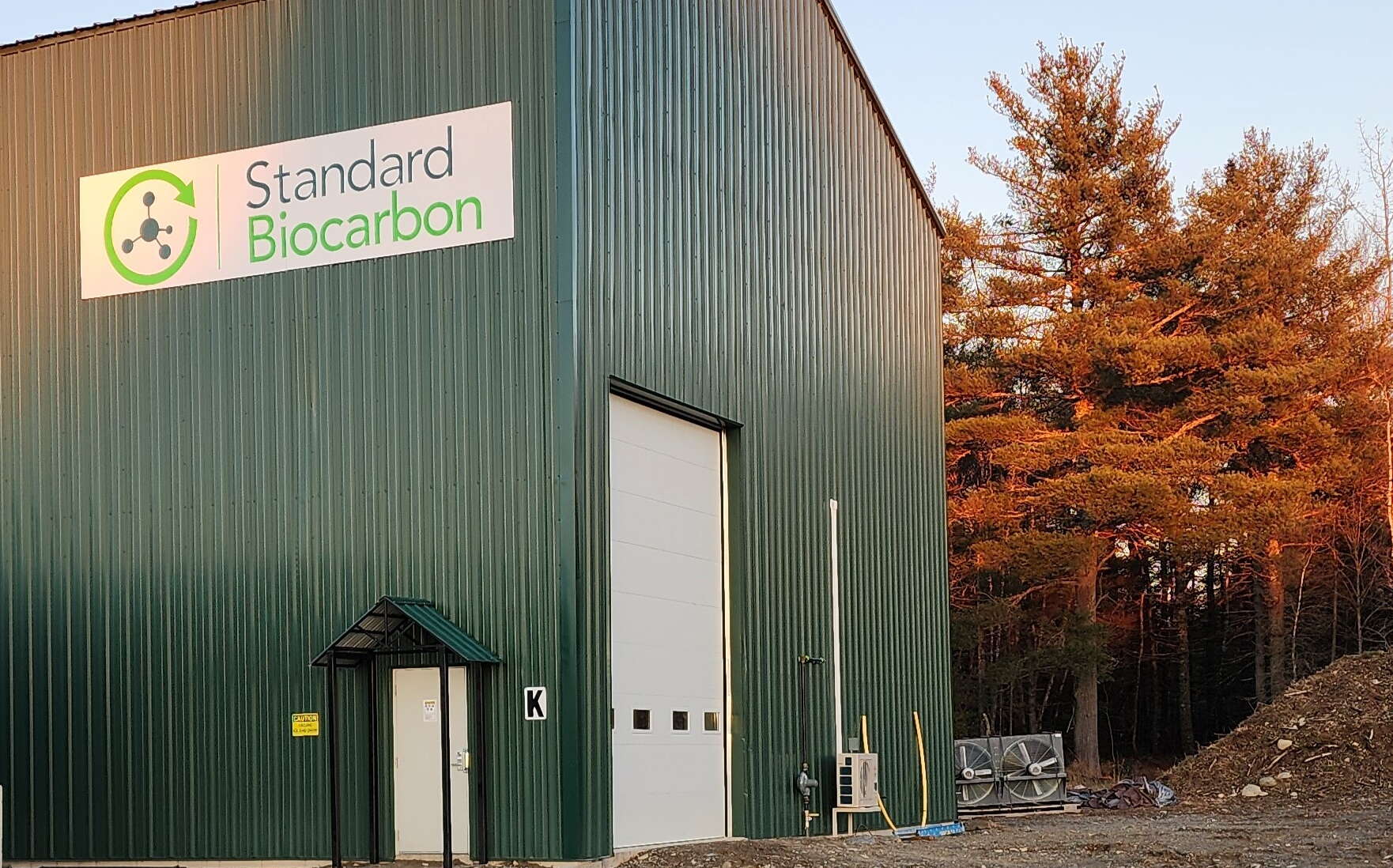
Standard will utilize “pins and fines” from the state-of-the-art low-diameter spruce fir mill, creating a new outlet for the low-value byproduct.
The $5 million from Nexus adds to previous investments of nearly $10 million, with funding provided by loans, grants and tax credits from Coastal Enterprises Inc., Finance Authority of Maine, Maine Technology Institute the U.S. Department of Agriculture and the U.S. Forest Service.
Additional funding has been provided by a carbon credit streaming agreement and associated royalty agreement with Toronto-based Carbon Streaming Corp
The plant will use two high-tech German-made pyrolizers that can precisely control reaction temperature and flow rate to produce consistent high-quality biochar. The pyrolizers are housed in a new 50-by-125-foot building supported by a feed system, chip drying and sizing technology and a bagging system. The technology is designed to produce precision biochar suitable for high-value uses, such as the remediation of PFAS contaminants and heavy metals in soil and water.
Horton has told Mainebiz that the technology — operating at 600-plus degrees Celsius, or over 1,000 degrees Fahrenheit — uses high temperature and low oxygen to create a product that’s consistent with over 90% carbon content by weight, very low ash and near neutral pH.
The feed system is made by Indianapolis-based BE&E, or Biomass Engineering & Equipment.
The plan is to operate the plant 24/7 and produce about 160 tons, or 950 cubic yards, monthly.
Horton has said that agriculture is the best-established market for the product. The company is also eyeing environmental remediation and stormwater management, along with other emerging uses in cement, pavement and advanced materials such as graphene and electrodes.
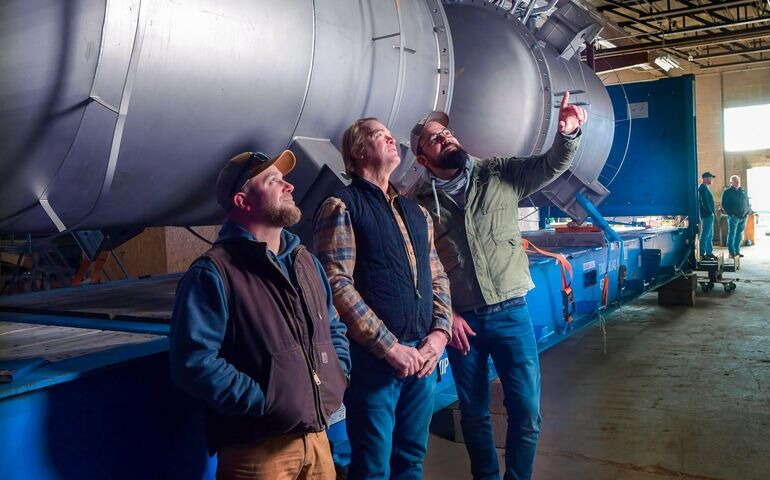
According to research by the International Biochar Institute, biochar has the potential to capture up to 3 billion metric tons of CO2 annually, reducing global emissions by up to 6%.
How biochar is used
According to Standard, its technology is state-of-the-art with negative emissions and will efficiently produce biochar of consistently high quality to create the highest value carbon dioxide removal. High-value applications with environmental benefits are expected to include:
- Remediating heavy metals and forever chemicals (PFAS) from water and soils
- Reduction of methane emissions via new animal feed additive
- Feedstock to produce graphite or graphene for battery electrodes and composites
- Improving soil productivity, water and nutrient retention
- Alternative concrete and pavement
- Reducing urban tree mortality
- Improving water filtration capabilities
- Emerging uses of renewable materials in technology where nonrenewable metals have historically been used
About the investor
Established in 2021, Nexus Development Capital’s investment model focuses on providing capital to accelerate early-stage project teams that are often developing “first of a kind” low-carbon solutions. By filling an investment market gap, Nexus’s goal is to enable developers to prove their business model, complete development activities, grow their teams and commercialize their technologies.
Standard is one of six startups in Nexus’s portfolio.
“Biochar is one of the most cost-effective and commercially ready approaches for removing CO2 from the atmosphere. Scaling these types of carbon removal facilities is now one of our biggest opportunities,” said Joshua Kaufman, CEO of Nexus Development Capital. “We see Standard Biocarbon as one of the first to bring these in-demand carbon sequestration solutions online to meet the huge appetite across multiple sectors.”

With installation of its twin Pyreg PX-1500s completed, Standard is in the process of sourcing and installing auxiliary systems like feedstock dryers, sorting equipment and material movement systems.
The startup is also ramping up outreach and establishing a distribution partner program to serve biochar customers throughout the northeast and beyond. It’s expected that deliveries will begin in April.
The ramp-up includes the recent hire of a marketing director, Jon Kaplan, who has 25 years of experience growing technology-based businesses in North America, Europe and Asia.
“We've invested in technology and automation to help us reach and educate the various markets about the advantages and applications of biochar,” Kaplan told Mainebiz. “We're attending trade shows all over the northeast, sending biochar samples to prospective users, and publishing educational blogs for the community.”
The company is in negotiation with several regional partners and will announce them once formal agreements are reached, which is expected to be within the coming months.
The start of production is slated for February, with full production in March.
“We have received several off-take contracts for production material and continue to take capacity reservations for early 2024,” said Kaplan.

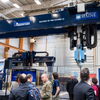







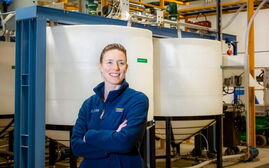




0 Comments